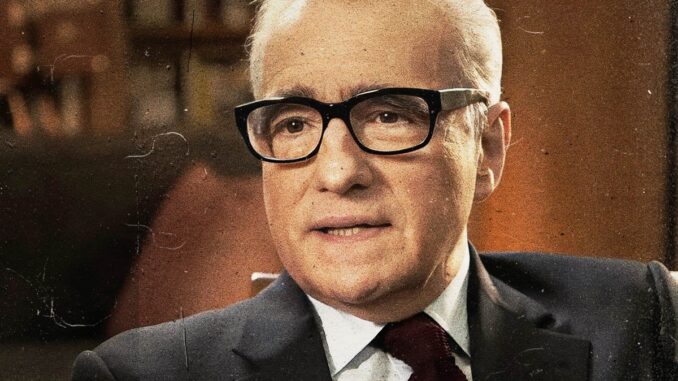
Scorsese’s Disconnection from The Sopranos
You might think that Scorsese, who has masterfully crafted narratives around gangsters, would be an ardent fan of The Sopranos, a series that pays homage to his film Goodfellas in multiple ways. However, that’s not the case. In the documentary, Chase reveals that Scorsese simply “doesn’t get” the show, saying it felt too rooted in an unfamiliar landscape for him. According to Chase, Scorsese remarked, “It’s like all these trees and s***,” indicating that the New Jersey setting and the domestic life of the characters were off-putting.
The New Jersey Factor
Chase has always been vocal about his desire to shoot the series exclusively in New Jersey. He believed that the gritty realism of the state, with its heavy industries and urban wilderness, was crucial to the narrative. In his words, “I knew New Jersey really well,” and that knowledge fueled his vision for the show. However, for someone like Scorsese, who grew up in the bustling streets of Little Italy, the suburban landscape of New Jersey may have felt alien.
Scorsese’s comments reflect a broader cultural disconnect. As someone whose formative years were spent in a world that romanticized the Italian-American gangster lifestyle, the familial and everyday life depicted in The Sopranos may not resonate. Chase notes, “A lot of mob things before that have been in Manhattan or Brooklyn,” creating a dichotomy between the environments depicted in their stories.
Why The Sopranos Redefined the Genre
While Scorsese’s critiques stem from personal experiences, it’s essential to recognize that The Sopranos was groundbreaking in its portrayal of mob life. It turned the genre on its head by focusing on character development over glorified violence and criminality.
More Than Just Gangsters
The Sopranos is about more than just mobsters; it’s about the struggles of a man trying to balance his chaotic life. Tony Soprano, portrayed brilliantly by James Gandolfini, is not merely a gangster; he’s a husband, father, and someone grappling with mental health issues. This multidimensionality is a stark contrast to the more straightforward gangster archetypes that Scorsese has traditionally portrayed.
Chase deliberately crafted a narrative that explored the complexities of family life, mental health, and the mundane realities of being a criminal. This focus on the human condition is what separates The Sopranos from earlier gangster films and series, and it’s what makes it resonate with audiences. Chase notes, “I wanted to show the mob as it really was—people living their lives, dealing with everyday issues.”
Scorsese’s Traditionalism
In light of this, Scorsese’s traditional view of mob life creates an interesting tension. While he has celebrated the violent, romanticized version of gangsters in his films, Chase opted for realism. In 2019, Scorsese candidly admitted, “I think I only saw one episode… because I can’t identify with that generation of the underworld.” His critique reveals a significant generational gap in understanding how the mob narrative can be portrayed.
This disconnect highlights the broader question of how culture shapes storytelling. Scorsese’s background led him to depict crime in a way that resonates with his experiences. In contrast, Chase’s portrayal reflects a more contemporary understanding of the mob—one that includes the messiness of family dynamics, psychological struggles, and societal pressures.
The Legacy of The Sopranos
Despite Scorsese’s lukewarm reception, there’s no denying that The Sopranos has left a lasting impact on television and storytelling as a whole. It’s become a cornerstone for what’s known as “prestige TV,” a term that encapsulates high-quality, character-driven narratives that delve deep into the human experience.
Influencing a New Wave of Storytelling
The Sopranos paved the way for shows like Breaking Bad, Mad Men, and The Wire, all of which have drawn inspiration from its narrative style and character complexity. These series have continued to challenge the norms of television, focusing on flawed characters and moral ambiguity, echoing the ground that Chase broke with his work.
The Cultural Phenomenon
Culturally, The Sopranos has infiltrated various aspects of media, from memes to academic studies. The show is often referenced in discussions about character development and storytelling techniques. Scorsese himself, despite his criticisms, cannot escape the influence of The Sopranos; the show has become a reference point in discussions of gangster narratives.
Conclusion: A Complex Relationship
In the end, the relationship between Martin Scorsese and The Sopranos is as layered as the characters in the show itself. While Scorsese may not appreciate the series as much as its fans do, his critiques provide valuable insights into the evolution of the gangster narrative. David Chase’s creation remains a groundbreaking piece of art that not only reshaped television but also expanded the conversation about mob stories, shifting focus from glorification to realism and humanity.
